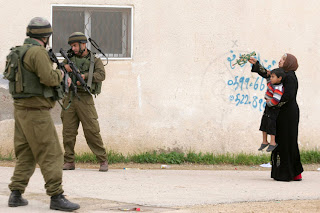The Mizrahi Jews, or Jews hailing from the Middle East, Asia and North Africa, are a group of ethnically distinct Jewish practitioners that faced near-universal expulsion from Arab states following 1948. This is despite the fact that they had been living peacefully alongside Arab peoples for thousands of years, and represents a knee-jerk reaction on behalf of Arab leaders to the Arab-Israeli war. At least, according to the Committee for Accuracy in Middle East Reporting in America, an organization whose goal is to level the playing field when it comes to reporting on topics of Israeli history and politics. Some practice Sephardic Judaism, a result of intermingling with Jews who were similarly expelled from Iberia in 586 BCE and Spanish Jews. Most Mizrahim (of both sects) currently reside in Israel, which has absorbed almost a million displaced refugees in the time since the Six-Day War.
Mizrahim can be found all over the world, and with the exception of the aforementioned Israel the largest displaced populations are in the United States and western Europe. Many were eventually allowed back to their home countries, but not the assets they once owned. The instead live largely in tent cities and refugee camps on the outskirts of major metropolitan areas, denied any monetary compensation for their losses. As reported by notable English-language Israeli news site ynetnews, currently there are political movements that aim to reclassify the refugees are such, with proposed legislation that aims to compensate families for loss of property. The site has a history of accurate reporting, and either way the report doesn't have a slant in one way or the other.
Exterior of a Mizrahi synagogue.
The Mizrahim, as is the case with many Jewish groups, has often had been subjected to hardship over the course of its long history. This is according to the Jewish Virtual Library, which, while obviously of Jewish origin, would likely attempt to remain neutral on matters of historical relevance. Mizrahi that chose to live in Christian communities (notably Spain during the Spanish Inquisition) faced second-class citizen status and rampant violence, which included the Portugese expulsion of Jews and the Roman massacre of much of the Isreali population during the time of the Roman empire. Many would flee to Europe and the Mediterranean during these times, scattering the tribe as well as others such as the Sephardic and Orthodox.
Catholic agents would torture and kill thousands, many of them Jews, in an attempt to convert them to Catholicism during the Inquisition.
Contemporary Mizrahi live all over the world, though the sting of their recent expulsion from their Arab homes is still heavy on many of their minds. This article by former refugee Israel Bonan chronicles his ejection from Egypt in 1967, and refutes the notion that the Mizrahi lived peacefully alongside their neighbors up until 1948. His personal experiences don't necessarily define his life, but they do influence his views, as he notes that the black and white view of their history and expulsion s incorrect, as the political and social realities are far more complex. This is a universally true statement when it comes to historic events, especially with an ancient sect of Judaism like the Mizrahim.




